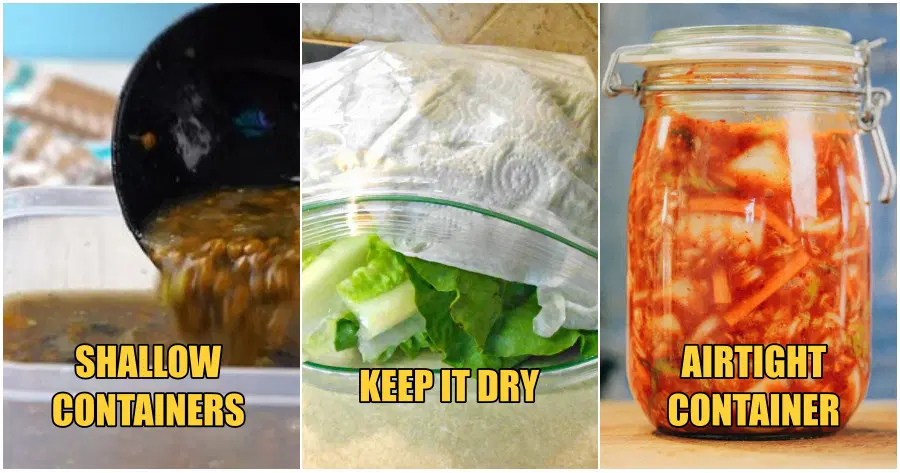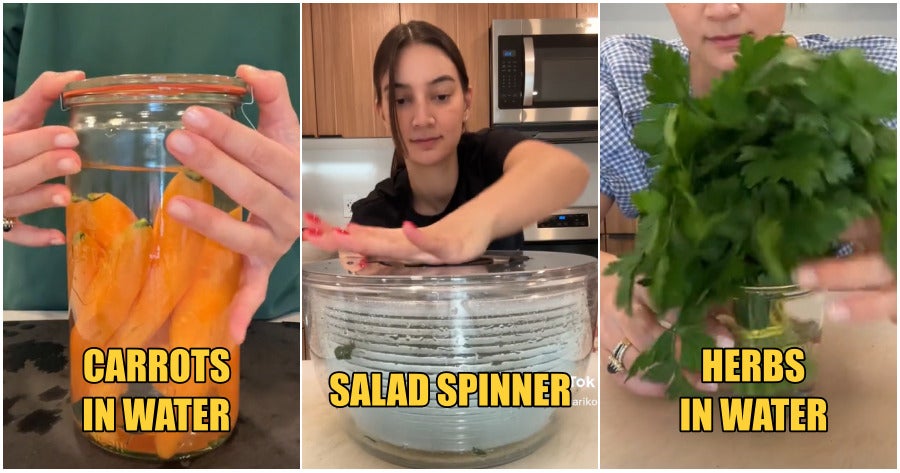If you’re on TikTok, you’ve probably seen a video or two of Emily Mariko preparing her salmon rice bowl or washing and organising her farmers’ market hauls.
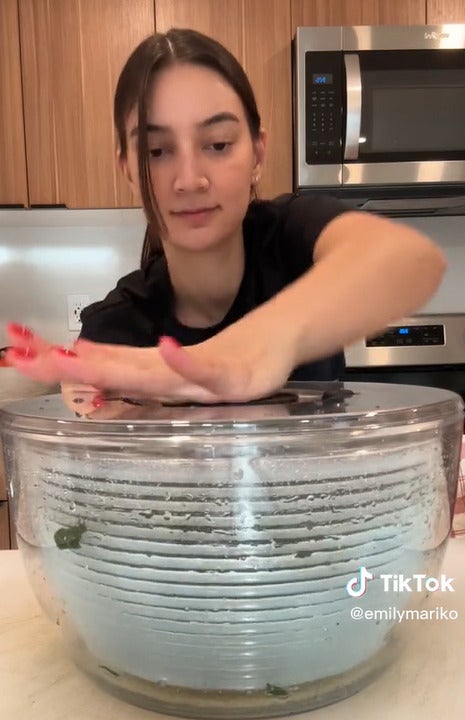
With millions of views on every video, Emily gets a lot of flak online for her cooking, specifically the supposed lack of seasoning and her questionable cooking methods (eg. her soupy pumpkin pie!! If you know, you know.)
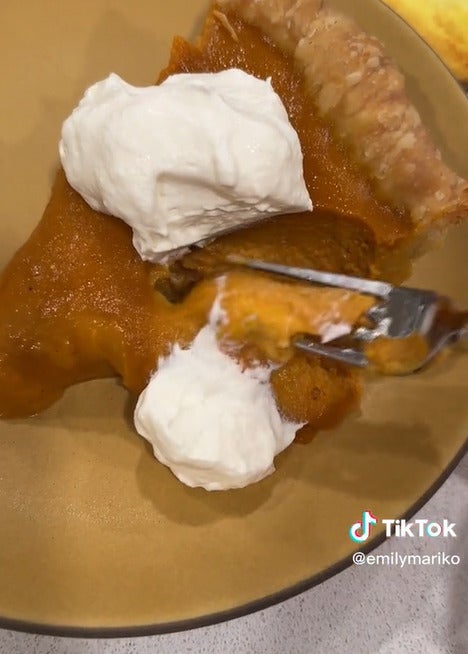
Nonetheless, Emily remains an unbothered queen and we think there’re a few things we can learn from her to be as put together as she is.
Here’re 7 Emily Mariko-approved produce prep tips you can try to get your life together this 2023!
Disclaimer: Please do not take any of these as truth. This is purely an Emily Mariko fan account article.
1. Carrots and celeries
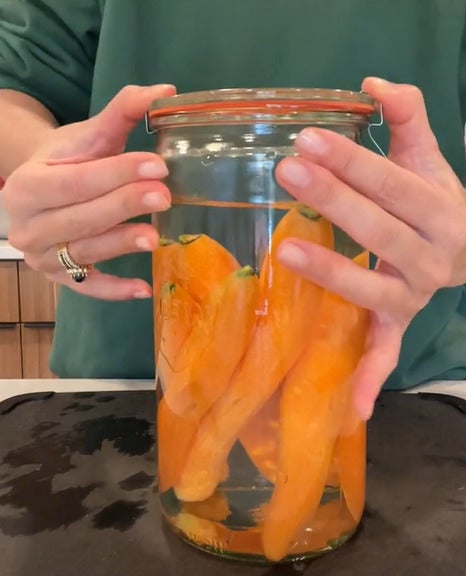
To keep these vegetables crisp, cut them to your desired length and store them in an airtight container, totally submerged in water. Make sure the length of your vegetables and containers match, like Emily’s ones here!
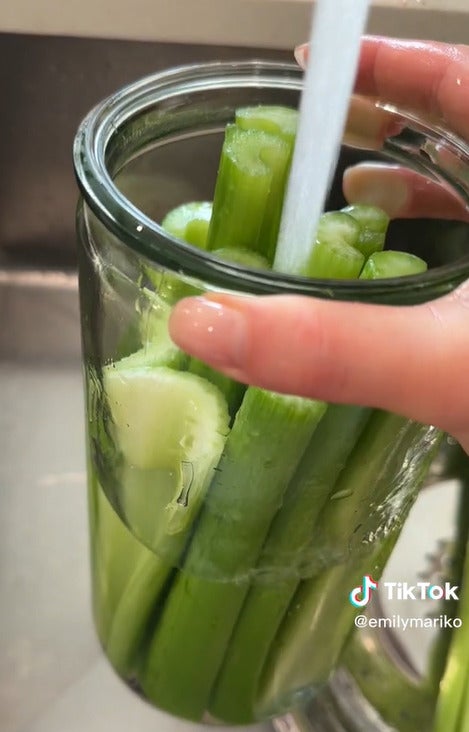
For the celery, you can just cut and wash them before storing. But for the carrots, make sure to trim off their green tops and peel them before you wash and store them.
2. Leafy greens
Excess moisture can cause leafy greens to rot faster in the fridge, so it is recommended to leave them unwashed until you need them and to just store them in the fridge in an airtight container or zip lock bag.
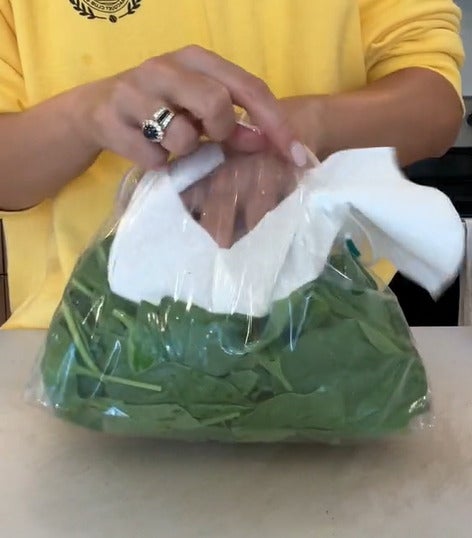
However, if you prefer prewashing your greens like Emily, there’re a couple of steps you can take to minimise moisture around the vegetables.
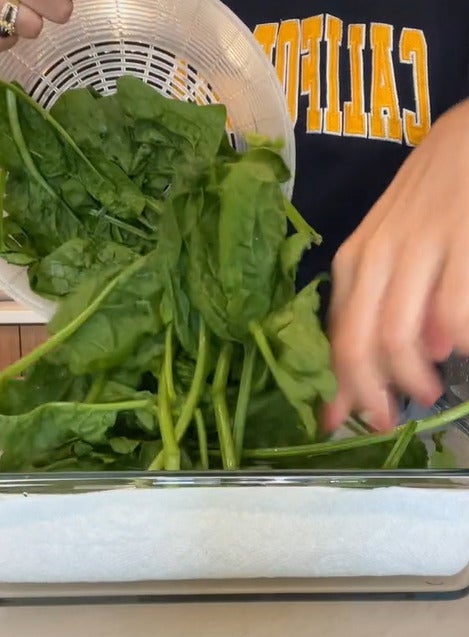
After trimming and chopping the vegetables to your desired size, wash them, dry them in a salad spinner then store them in an airtight container or zip lock bag lined with a piece of paper towel.
3. Fresh herbs
Fresh herbs tend to have a lot of dirt and debris so before you do anything, give them a wash before spinning them dry in a salad spinner. Then remove any discoloured or wilted leaves.
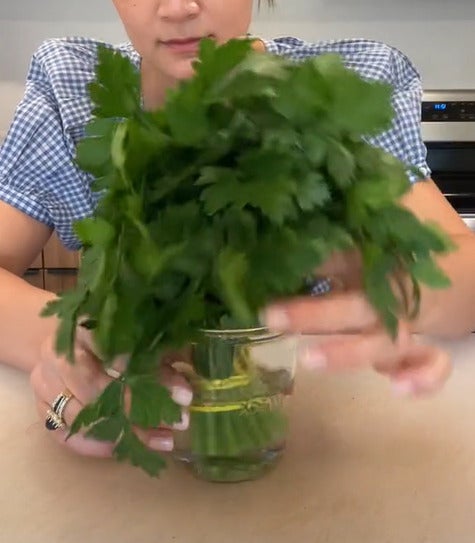
Emily doesn’t seem to wash or filter through the herbs she buys because they seem to always be spotless; but we’re not Emily, so wash your herbs! Or don’t; don’t let anybody tell you what to do.
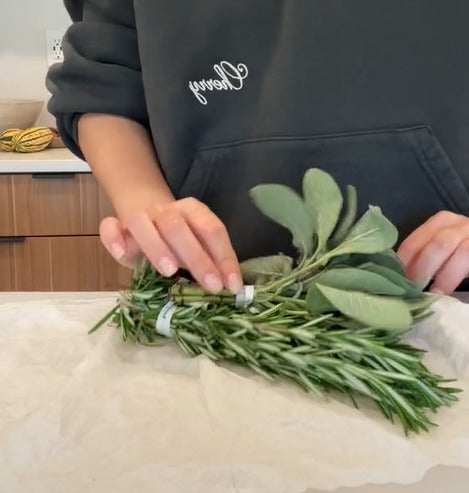
Anyway, for herbs with soft and tender stems like coriander and dill, chop off the bases of their stems before putting them upright in a glass jar with about an inch of water at the bottom, sort of like a bouquet of flowers! Finally, cover the top of the herbs with an overturned plastic bag and store it in the fridge.
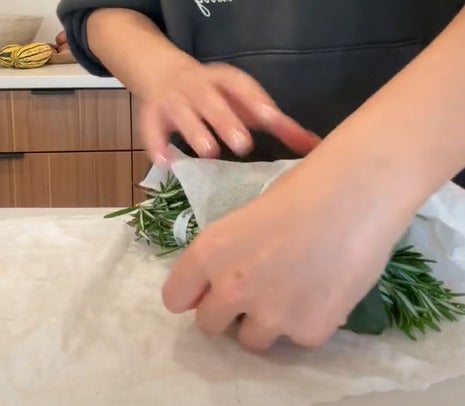
Whereas for hardier herbs like rosemary and thyme, roll them up in a damp paper towel before storing them in a zip lock bag in the fridge.
4. Cucumbers
Cucumbers are a rare guest on Emily’s veggie prep videos, but we managed to catch one of its appearance and here’s how they’re stored.
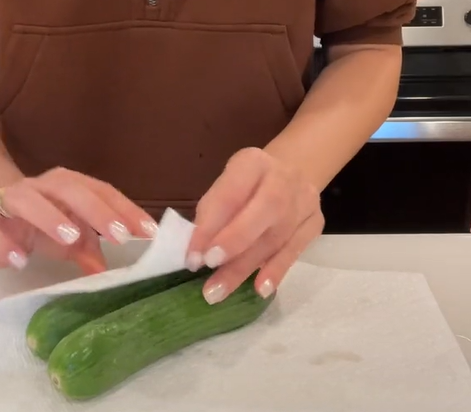
Wash your cucumbers and roll them up, uncut, in a paper towel. The paper towel is meant to soak up any moisture released by the cucumbers. Then, store them in an airtight container or a zip lock bag before putting them in the fridge.
5. Other veggies
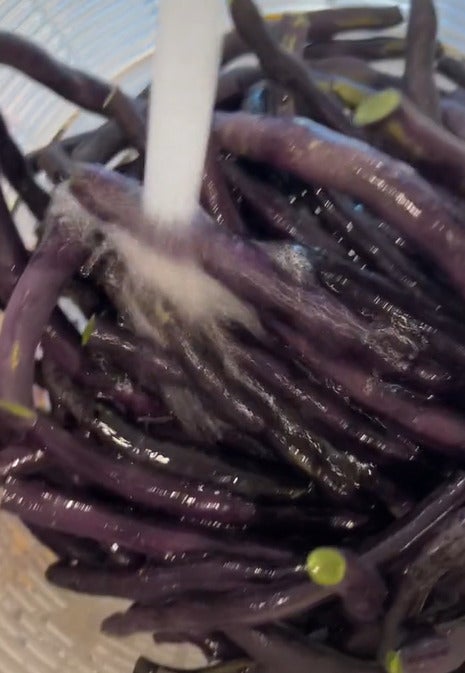
For other vegetables like snow peas, french beans, radishes, broccoli, cauliflower, you just have to cut them to your desired size, wash them, spin them dry, then store in an airtight container.
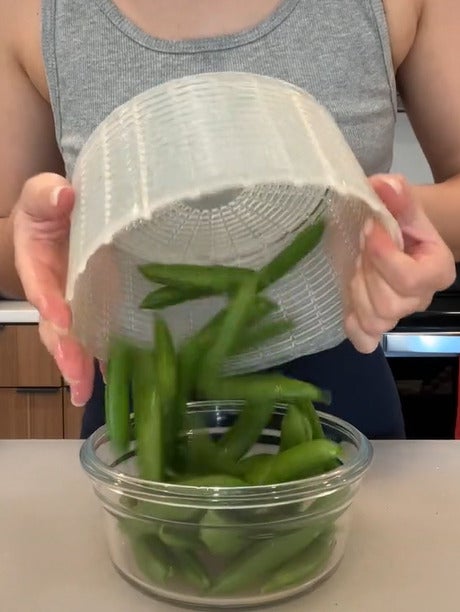
6. Bread
If you live alone, you know how long it can take to finish a loaf of bread unless you just live on bread till it’s finished.

So, the best way to store bread while keeping them as fresh as possible is putting them in the freezer instead of the fridge. This is because when bread is stored in a cold but higher than freezing environment, it will turn stale quicker than when it’s stored in room temperature.
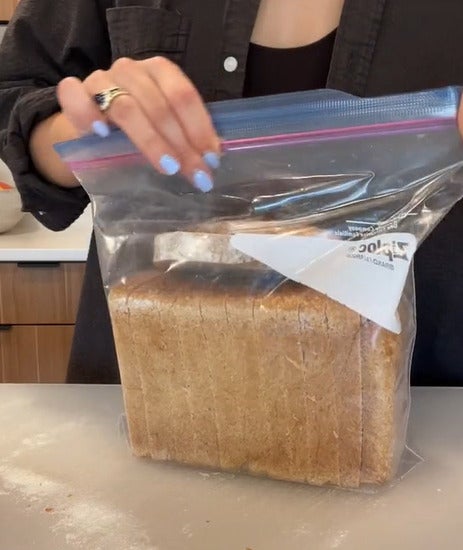
So, to follow in Emily’s lead, you can slice your bread, put them in a zip lock bag and keep it in the freezer to make them last longer!
7. Pomegranates
For easy snacking (we assume lah), Emily likes to de-seed and store a few pomegranates at once.
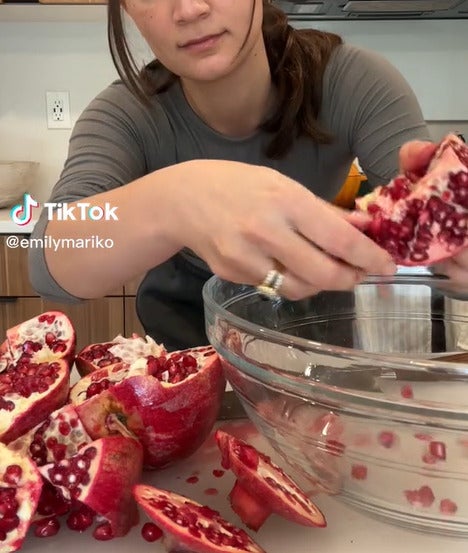
Some people like to whack the seeds out of the fruit, but Emily always removes the plump burgundy seeds with her hands. Then, she soaks them in water to get rid of the fruit’s leftover rind that is closely stuck to the seeds.
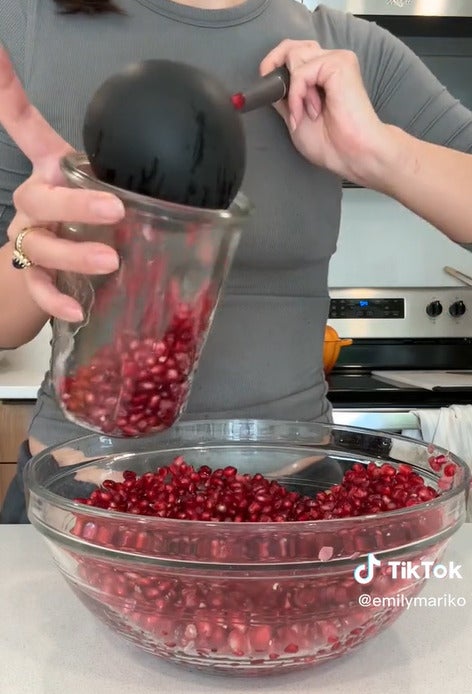
When the pomegranate seeds are free of any impurities, store them in an airtight container. They’ll last for 4-5 days in the fridge.
Clearly, this is NOT an exhaustive list of all the ways you can store your produce so that they last longer.
However, if you think this listicle stirred something in you and you’re now obsessed with this oddly satisfying veggie meal prep, there’re a ton of resources online on how you can properly store your vegetables that are not covered in this list.
Good luck!
Also read: 5 Food Storage Hacks You NEED if You Overbuy Your Groceries and Always Have Leftovers
